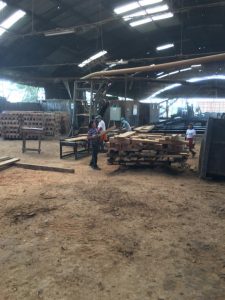CIPE’s Integrated Compliance Approach
Corruption doesn’t happen in a vacuum. Complex and poorly-implemented laws and regulations incentivize officials to demand bribes, while pushing companies to cut corners by paying the bribes. CIPE’s Integrated Compliance approach helps companies in emerging markets behave ethically by giving them the tools they need to comply with complex legal frameworks.
CIPE’s Integrated Compliance approach is designed to support local businesses in emerging markets that want to do business ethically but find compliance challenging across a range of risks—corruption, environmental, and labor.
What is Integrated Compliance?
Integrated Compliance is an approach to mitigating risks that expands on anti-corruption compliance and integrates other risk areas, such as environmental and labor risks. Integrated Compliance is based upon the understanding that corruption, labor, and environmental risks are closely intertwined; therefore, a holistic approach for mid-sized businesses is not only efficient but also necessary. CIPE’s Integrated Compliance approach involves in-depth, local sectoral analysis, adapting existing tools to local needs, and training local businesses to use the tools to build holistic compliance programs.
From the point of view of local businesses, the Integrated Compliance approach involves:
- Working with CIPE to systematically assess their risks
- Using tools and training from CIPE to build holistic compliance programs, and
- Coming together with other businesses to learn about common experiences and discuss sector-based ways to mitigate the risk.
 Integrated Compliance Applied
Integrated Compliance Applied
In Peru, deforestation is one of the country’s largest environmental and corruption challenges. CIPE deployed its integrated compliance approach to help local businesses in the forestry sector develop compliance programs that mitigate environmental and corruption risks. CIPE assessed sectoral needs through a survey and a focus group, delivered a risk assessment and mitigation program tailored to local needs, and gave the Peruvian government grassroots-based recommendations on how to reduce corruption and support sustainable forest management.
Indonesia’s palm oil sector has a chronic weakness with environmental, labor, and corruption compliance. CIPE used its integrated compliance approach to extensively engage stakeholders in the palm oil supply chain to analyze stakeholders’ needs. Using the resulting findings, CIPE designed a training course for companies in the sector on Indonesia’s regulatory environment and partnered with the Indonesian Government’s Corruption Eradication Commission (KPK) to improve how the government responds to corruption challenges.
What’s next for Integrated Compliance?
The next application of the Integrated Compliance approach is in Guatemala’s apparel sector. Here, CIPE is specifically focused on the intersection between corruption and labor compliance risks. CIPE is in the process of mapping out stakeholders in the sector and assessing the needs of local businesses. CIPE will then develop targeted tools and trainings and use them to help medium sized businesses to develop their own programs to mitigate risks. CIPE is also working with the American Apparel and Foot ware Association to align these resources with the due diligence conditions of brands sourcing from Guatemala. This will help local apparel businesses understand the needs of their MNC partners.
The project in Guatemala is the first time CIPE will apply the Integrated Compliance approach in the manufacturing sector. The manufacturing sector is less idiosyncratic than the natural resource sectors CIPE has focused on in past applications of Integrated Compliance, and so the project in Guatemala will help CIPE scale Integrated Compliance to manufacturing sectors in other countries.
